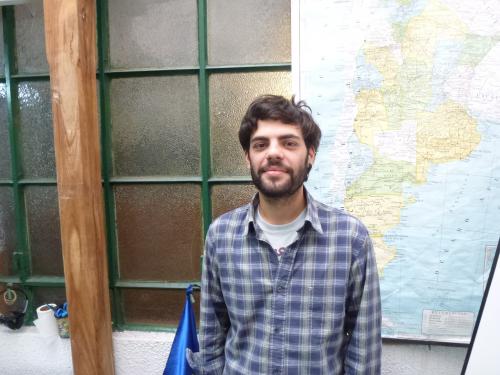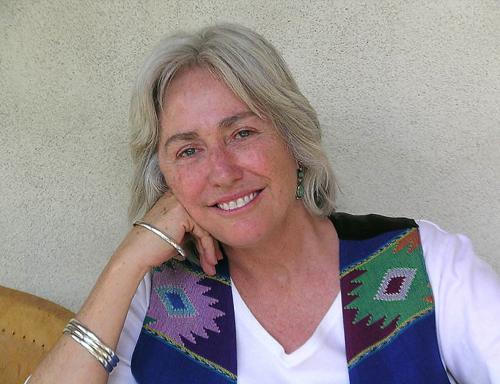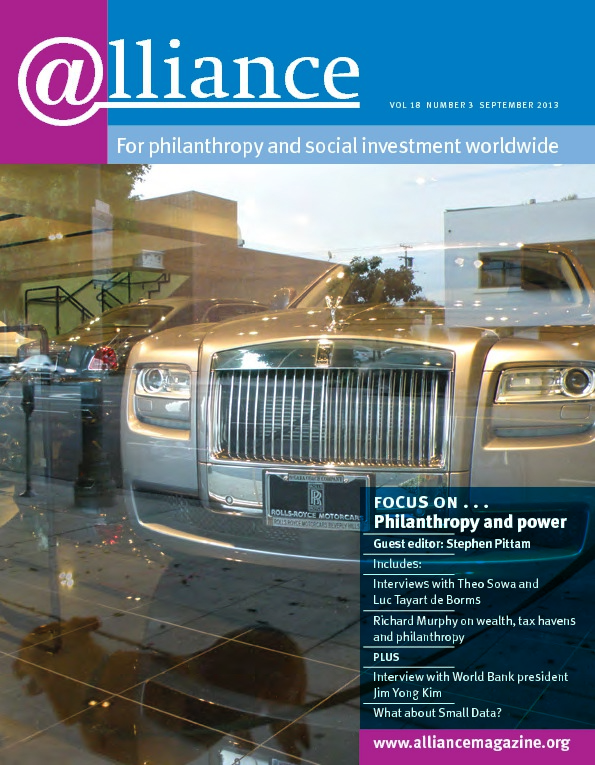 These days, it is fashionable for foundations to talk of grantees as partners. How real is that? Most of us would agree that in funder/grantee relationships, the grantmaker usually holds the power. Not all of it, of course. The donor’s goal is dependent on the work of the partner group, but a group cannot become a partner unless the funder knows about them. Access is a key element. And once an organization is known to a funder, how much dialogue is involved? Who sets the objectives? How often are grantees asked to modify their work to fit the donor’s priorities?
These days, it is fashionable for foundations to talk of grantees as partners. How real is that? Most of us would agree that in funder/grantee relationships, the grantmaker usually holds the power. Not all of it, of course. The donor’s goal is dependent on the work of the partner group, but a group cannot become a partner unless the funder knows about them. Access is a key element. And once an organization is known to a funder, how much dialogue is involved? Who sets the objectives? How often are grantees asked to modify their work to fit the donor’s priorities?
 For 20 years, Global Greengrants Fund (GGF) has been aiming to turn philanthropy upside down. GGF staff raise money in the North, from relatively affluent US and European donors, to provide budgets to advisory boards in 13 parts of the world. These boards make small, mostly unrestricted grants to grassroots causes throughout the Global South. GGF values local knowledge and the alternative solutions offered by those most affected over decisions made by programme officers, trustees or wealthy donors. The GGF model aims to urge activists in the South to build power from where they are. Volunteer activist advisers develop strategies, identify promising grassroots efforts, give timely, flexible funds to groups and leaders in their area, and often mentor the most successful groups as they grow. GGF tries to put power in the hands of local people with the ability to address the challenges they face and to create change.
For 20 years, Global Greengrants Fund (GGF) has been aiming to turn philanthropy upside down. GGF staff raise money in the North, from relatively affluent US and European donors, to provide budgets to advisory boards in 13 parts of the world. These boards make small, mostly unrestricted grants to grassroots causes throughout the Global South. GGF values local knowledge and the alternative solutions offered by those most affected over decisions made by programme officers, trustees or wealthy donors. The GGF model aims to urge activists in the South to build power from where they are. Volunteer activist advisers develop strategies, identify promising grassroots efforts, give timely, flexible funds to groups and leaders in their area, and often mentor the most successful groups as they grow. GGF tries to put power in the hands of local people with the ability to address the challenges they face and to create change.
Greengrants also manages a handful of donor advised funds (DAFs). Advisers may be involved, but less centrally than in the core, or adviser-directed, programmes. For all DAFs, whether the decision-makers are individuals or foundations, GGF operates as a kind of back-office, undertaking the legal due diligence to make international grants. All holders of DAFs make a donation of at least $50,000 per year to GGF’s core grants programme in addition to a fee for the back-office services. The DAF programme is attractive to donors who align themselves with GGF’s mission but also want to direct funding to specific organizations or causes. While DAFs can be complementary to GGF’s overall programmatic goals, they are more typical of traditional philanthropy where elites in the North are the decision-makers. Perhaps not surprisingly, because DAFs afford the greatest tax benefit and the most control to donors, they are the fastest-growing philanthropic vehicle in the US.
How it works in practice
In many parts of the Global South, it is difficult to access philanthropic funds of any kind. This is especially so for grassroots, small and unknown organizations. Yet since 2008, Observatorio Petrolero Sur or South Oil Observatory (OPSur) and Global Greengrants Fund have been forging a partnership.
In Argentina, as in the rest of the world, foreign companies are exploiting the country’s natural resources for their own benefit. Since 2008, faced with increasingly destructive extractive techniques like fracking, OPSur has fought to create regions free of oil extraction, to promote environmental justice and human rights.
As an emerging organization, OPSur was new to the bureaucratic processes necessary for securing grants. Funding from GGF’s Southern Cone Advisory Board, made up of fellow activists struggling against the extractive industries, enabled OPSur to fight government and corporate powers in a dynamic and flexible manner. The Southern Cone advisers are local and quickly accessible, which has allowed OPSur the time to focus on the work at hand.
When OPSur was ready to take the next step following its first grant, the Southern Cone advisers were not only open to new projects but also involved. Eventually, as OPSur continued to grow and more funds were needed than could be provided by the small grants advisers, GGF helped with contacts, suggestions and information. GGF not only kept supporting OpSur’s work but also helped in expanding it at an international level, helping open doors to increase their influence through other donors.
GGF has also helped bring in support from a DAF it manages, which has provided OPSur with the opportunity to study the effects of fracking on water quality, to document human rights abuses within the industry, and to publish reports of its findings. As OPSur’s objectives and scale have grown, GGF has adapted and supported the organization’s new priorities. It has been a relationship that has helped OPSur mature with flexibility, based on solidarity and cooperation where the organizations share power for common objectives.
Diego di Risio is co-founder and researcher at OPSur. Email contacto@opsur.org.ar
Terry Odendahl is executive director of Global Greengrants Fund. Email terry@greengrants.org






Comments (0)